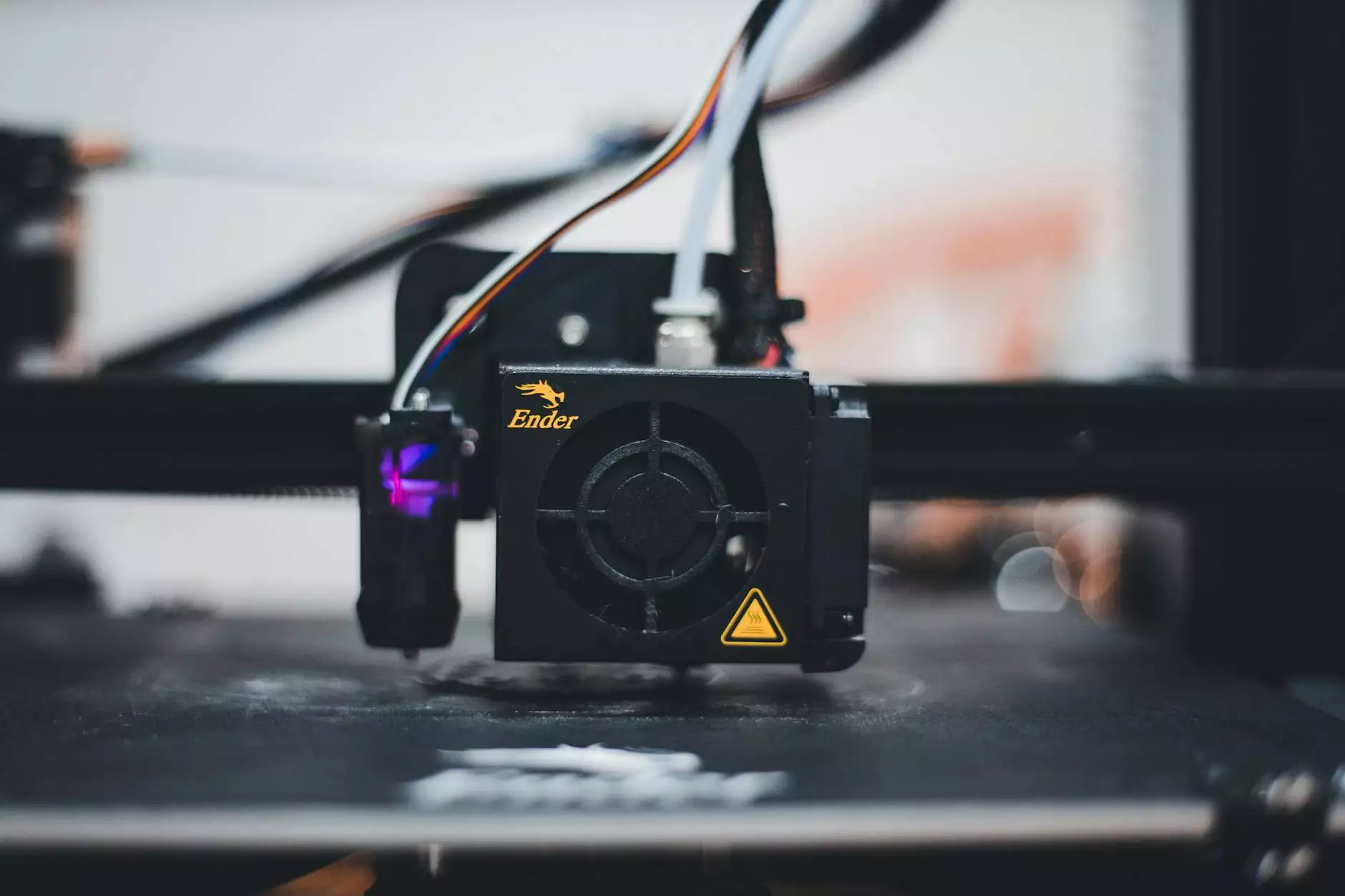Revolutionizing Education with AI: The Future of Learning

The landscape of education is evolving rapidly, driven by advancements in technology and the integration of artificial intelligence (AI) in learning environments. As educational services adapt to meet the needs of a diverse student population, AI emerges as a powerful tool that can enhance teaching methodologies, personalize learning experiences, and support special education needs.
Understanding AI in Education
Artificial intelligence refers to the simulation of human intelligence in machines that are programmed to think and learn like humans. In the context of education, AI's application ranges from administrative tasks to personalized learning pathways for students. AI can analyze vast amounts of data to help educators understand individual student needs, making it an invaluable asset in the realm of educational services.
The Role of AI in Educational Services
As the demand for tailored educational experiences grows, AI can significantly streamline how educational services operate. Here are some key roles AI plays:
- Personalized Learning: AI systems can create personalized learning experiences tailored to each student's strengths and weaknesses, adapting in real time to ensure optimal learning.
- Data Analysis: AI can collect and analyze data from various sources to help educators understand trends, improving curriculum development and student performance tracking.
- Assessment Tools: Advanced AI tools can evaluate student essays and assignments, providing immediate feedback and grading that saves educators invaluable time.
- Tutoring and Support: AI chatbots can serve as 24/7 tutors, answering student queries and providing assistance when teachers are unavailable.
- Special Education Support: AI can create customized learning modules for students with special needs, ensuring inclusivity in educational settings.
Enhancing Special Education with AI
Special education presents unique challenges that traditional methods may struggle to address optimally. Here’s how AI is changing the game:
1. Custom Learning Experiences
Students with learning disabilities often require tailored approaches to their education. By using AI algorithms, educational institutions can develop customized curriculum pathways that suit individual learning styles, ensuring each student progresses at their own pace. This personalization not only aids in comprehension but also boosts student engagement.
2. Real-Time Progress Monitoring
AI tools can track a student’s progress in real time through consistent assessments, providing educators with immediate insights. This capability allows early intervention strategies when a student may be struggling, ensuring timely support and resources.
3. Interactive Learning Environments
By integrating AI into interactive learning environments, educators can foster a more engaging atmosphere for students with special needs. AI can adapt learning materials based on student responses, ensuring they remain engaged and motivated.
The Importance of SEO in Educational Services
As the digital landscape evolves, the demand for effective online presence grows. Educational services must prioritize Search Engine Optimization (SEO) to ensure visibility and reach for their offerings. Effective SEO strategies can help educational institutions and businesses provide resources that are easily discoverable by students, parents, and educators alike.
1. Keyword Optimization
Incorporating relevant keywords, such as “ai writes an essay”, into website content, blog posts, and articles ensures that potential users can find the services offered. Businesses must conduct thorough keyword research to identify terms their audience is searching for.
2. Quality Content Creation
Creating rich, informative, and engaging content will not only attract users but also establish authority in the field. By answering common questions and providing valuable resources, educational services can enhance their credibility and ranking on search engines.
3. Link Building
Building relationships with other educational platforms and websites can lead to backlinking opportunities, boosting overall SEO. Collaborative projects, guest blogging, and sharing valuable resources can foster these relationships.
Future Trends: AI and Education
As AI continues to evolve, its integration into educational services will manifest in several exciting trends:
1. AI-Driven Content Creation
AI’s capability to generate content presents opportunities for educators to create tailored learning materials. For instance, AI can be utilized to produce essays, quizzes, and interactive learning modules, making the creation process efficient and innovative. Educational tools that “ai writes an essay” can empower students to explore different writing styles and perspectives.
2. Virtual Reality and Augmented Reality
Combining AI with virtual and augmented reality will enhance immersive learning experiences. These technologies can transport students into simulated environments, making complex subjects more tangible and memorable.
3. Continuous Learning and Adaptation
AI will foster continuous learning environments where adaptive algorithms modify educational content based on real-time feedback, ensuring that students receive the most effective instruction.
Challenges and Considerations of AI in Education
While AI holds tremendous potential, there are also challenges and ethical considerations that must be addressed:
1. Data Privacy
With the increased use of AI tools, data privacy concerns are paramount. Companies must ensure that student data is secured and used ethically, complying with government regulations.
2. Equity in Access
As AI tools become more prevalent, there is a risk of widening the gap for those without access to advanced technology. Addressing this disparity is crucial to provide equal educational opportunities for all students.
3. Teacher Training
Effective integration of AI into educational practices requires comprehensive teacher training. Educators must be equipped with the skills to utilize AI tools effectively, balancing technology with traditional teaching methods.
Conclusion
In conclusion, the interplay between AI and education is leading to a transformation that promises to enhance learning experiences, personalize education, and support special needs. Educational service providers must embrace these changes to stay relevant and effectively serve their communities. The future of learning is bright, and by utilizing AI thoughtfully and strategically, we can create an educational landscape that is inclusive, engaging, and highly effective.
Call to Action
Join the conversation about AI in education! Share your thoughts and experiences on how AI is shaping learning. For more resources and insights into innovative educational services, visit thesify.ai today.









